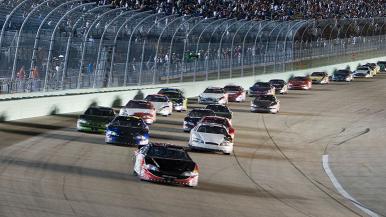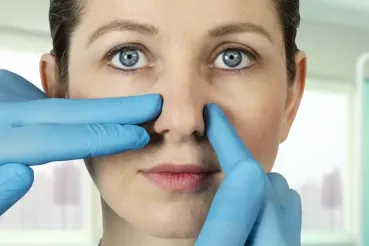When NASCAR hits the streets of downtown Chicago this weekend, noise from revved-up racecars could soar to 130 decibels — the equivalent of a jackhammer or jet taking off. And that could harm your hearing, Rush experts say.
“I would caution attendees, especially those who are attending a NASCAR event for the first time, to protect your ears appropriately and take actions to minimize the risk of hearing system harm,” said Rush audiologist Mike Hefferly, PhD, assistant professor in the Department of Communication Disorders and Sciences.
“This is equally important for those who have pre-existing hearing loss or tinnitus, as this extra physical stress placed on an unprotected hearing system can exacerbate these bothersome conditions.”
How loud is too loud?
Depending on how close you are to the source of the sound and how long you’re exposed to it, noise can have an irreversible effect on hearing over time. Exposure to noise over 90 decibels for eight hours is potentially harmful, according to the federal Occupational Safety and Health Administration. With each increase of 10 decibels, the noise is potentially harmful in half as much time.
“If you're right in the pit next to a car, the sound could be 130 decibels, which is incredibly loud because the decibel scale is exponential power not linear. So, a sound that's 110 decibels is several times louder than one at 100 decibels,” said otolaryngologist Elias Michaelides, MD, associate professor of otorhinolaryngology at Rush.
“If you're there for an entire race day, exposed to the sound, which could be over 100 decibels, using earplugs or noise-reduction earmuffs is a very smart idea to protect your hearing. Noise-cancellation headphones are not considered to be appropriate hearing protection.”
How to minimize your risk
Hefferly also suggests using disposable foam earplugs with a noise reduction rating of at least 25 dB as a cost-effective way to reduce risk.
“The hearing system has a daily limit as to how much stress it can withstand safely. If attending the race, minimize risk by reducing exposure to other high-intensity sounds such as loud music, clubs/bars, power tools, lawn care equipment, before and after the event. Taking a brief break from the race and moving to a quieter space can also help to reduce your risk.
Tips to protect children's hearing
Children may be especially susceptible to hearing damage. For young children who can't complain, they definitely should have hearing protection like over-the-head earmuffs.
“Their hearing is more delicate as they are still growing. Longer exposure to loud noises can cause hearing problems and damage to the inner ear. And, in children, this is more critical as it could affect a child’s ability to develop speech and language skills,” Michaelides said.
“Parents can use earmuffs for their child and earplugs for adults. For those attending the race in-person, it may be a very inexpensive way to protect one of our most valued senses.”
When to see a doctor
If you suspect that you have some hearing loss, with muffled sounds or ringing that lasts more than a day, you may want to consider being evaluated by an audiologist.
“Exposure to race cars can be very loud, so we encourage everybody to use hearing protection. Earplugs are easily and conveniently available at any pharmacy and are very inexpensive yet provide significant protection,” Michaelides said.
“If you are right by the track, you may want to think of over-the-head headphones that are even stronger at preserving hearing retention. It’s one simple way to help protect your hearing.”





